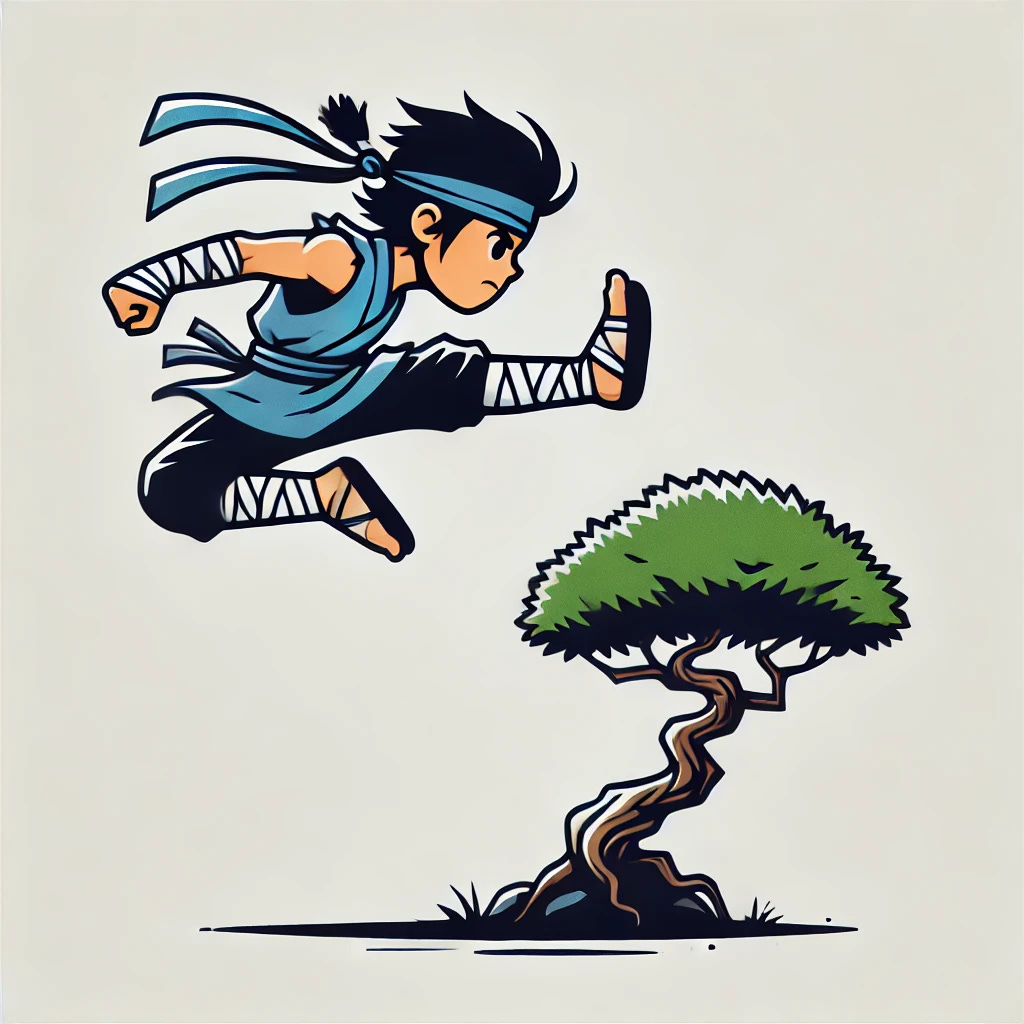Have you heard the story about the young warrior-in-training who plants a tree, then jumps over it one thousand times, every day, for decades?
As the tree grows, so does the young warrior’s ability to jump over it.
The story implies that, at some point, the warrior will be able to jump over the tree even at its greatest height—with more ease than it takes to brush their teeth.
For me, this is not a story about mastery or its pursuit; it is a story about practice.
>|<
Many years ago, I helped remove two mature Douglas Fir trees from a small backyard in NE Portland. The man who lived in the house, then in his 60s, said that he had planted them as a child. They were ~75’ in height that day.
I tried to imagine being so devoted to something that I would be able to jump 75 feet off the earth.
>|<
There’s a lot of noise about mastery, especially in the realm of Men’s Work. You can listen to the self-assured voices of the man-o-sphere and learn to divine-masculine your way into an optimal relationship, cram your day with a morning routine that will take til dinnertime—utmostly confident that each compounding ritual will reduce inflammation, increase your libido, and flood your system with enough dopamine to quit social media for hours.
The thing about mastery is that the people who call it mastery are those who have not achieved it, and those who are often thought of as masters would never call themselves so.
Why not?
Because mastery doesn’t actually exist.
You may think of mastery as a perfect piece of art, woodworking, or a stellar record. You may think of ‘self-mastery,’ as some sort of optimal state of wrangelling your wild parts into a pen and meditating them to death.
All of us mortals say we want mastery, and the masters keep saying that all it is, is just paying close enough attention to learn something new every day, applying that knowledge, and being kind.
…which sounds easy, right?
>|<
Michael Chabon once wrote in an essay how some famous writer said that for every kid you have, you sacrifice a book written. Chabon responded with something to the effect of, when he’s complete with writing a book, he’s done with it and the book is done with him. Not so with his four children, which are living, reciprocal relationships.
There’s a part of me which wants to have already done the thing, written the thing, completed it.
On my best days, I thank that part, and get back to work.
>|<
What does any of this have to do with men’s work and psychedelics?
Everything.
Men’s work is to practice being together (simply, that), to take note when things throw you off your center, and, most profoundly, to be witnessed in coming back to yourself.
The deepest, most world-changing work you can do is to befriend the things that throw you off center, and to befriend the you that was done to.
And just like the young practicing warrior, jump over this tree a thousand times a day.
Psychedelic medicines are your assistants. They will show you where the work is, but the work may not be what you see in your visions.
>|<
Learn to trust “that which transpires behind that which appears.”
and be kind.






